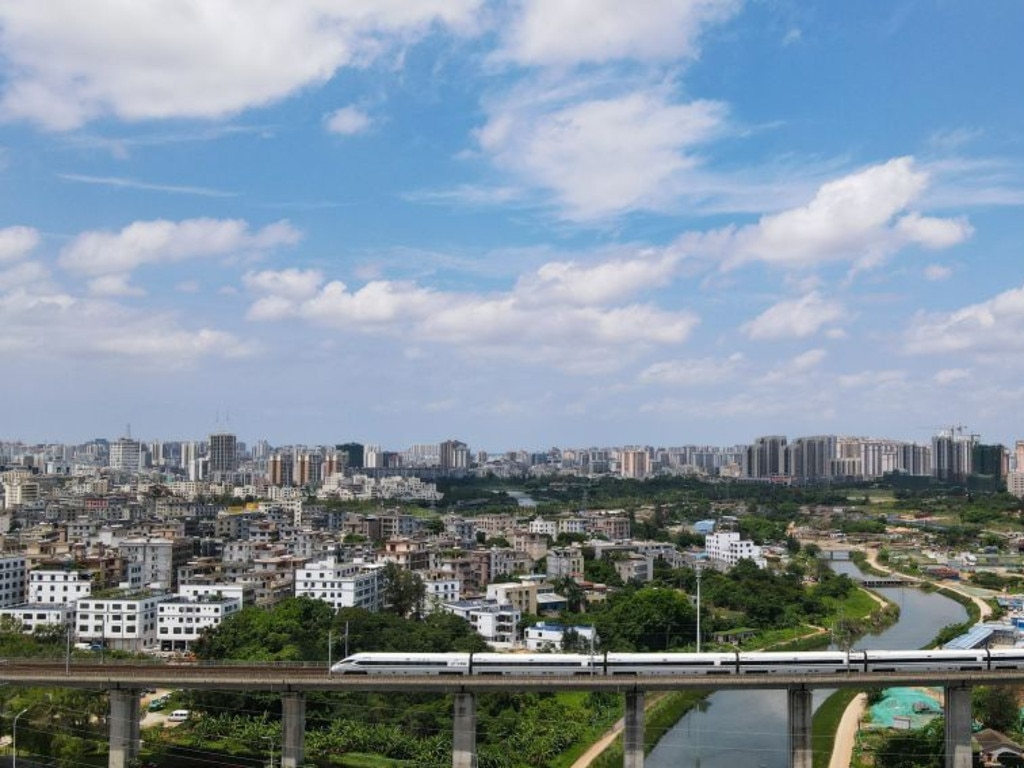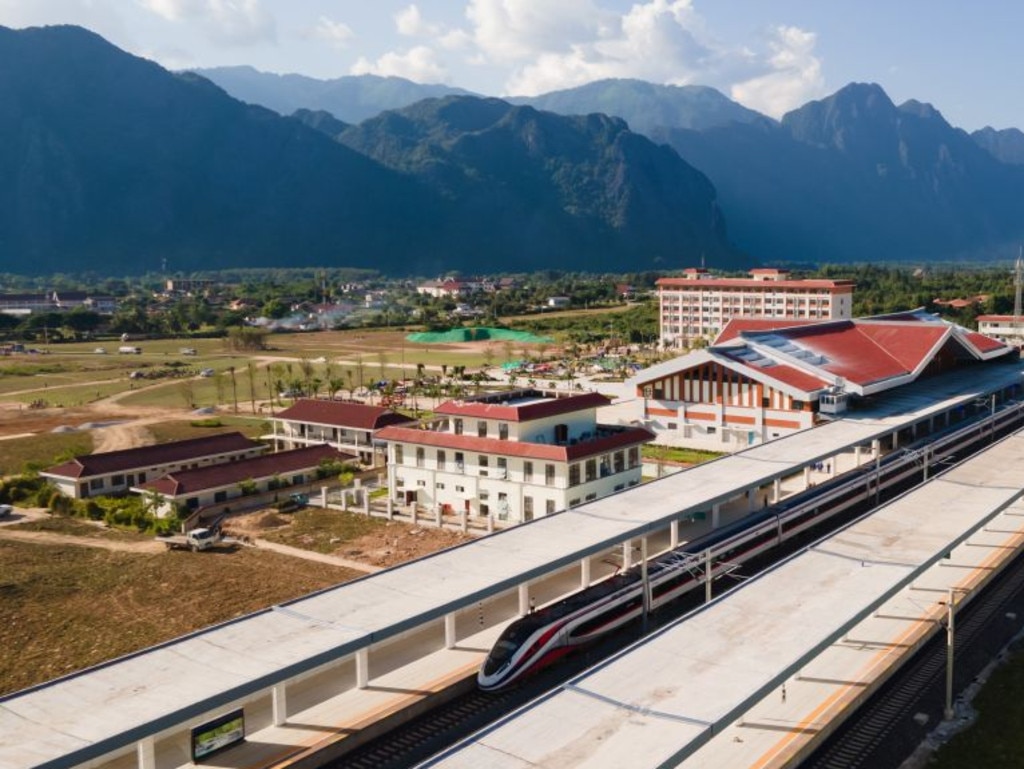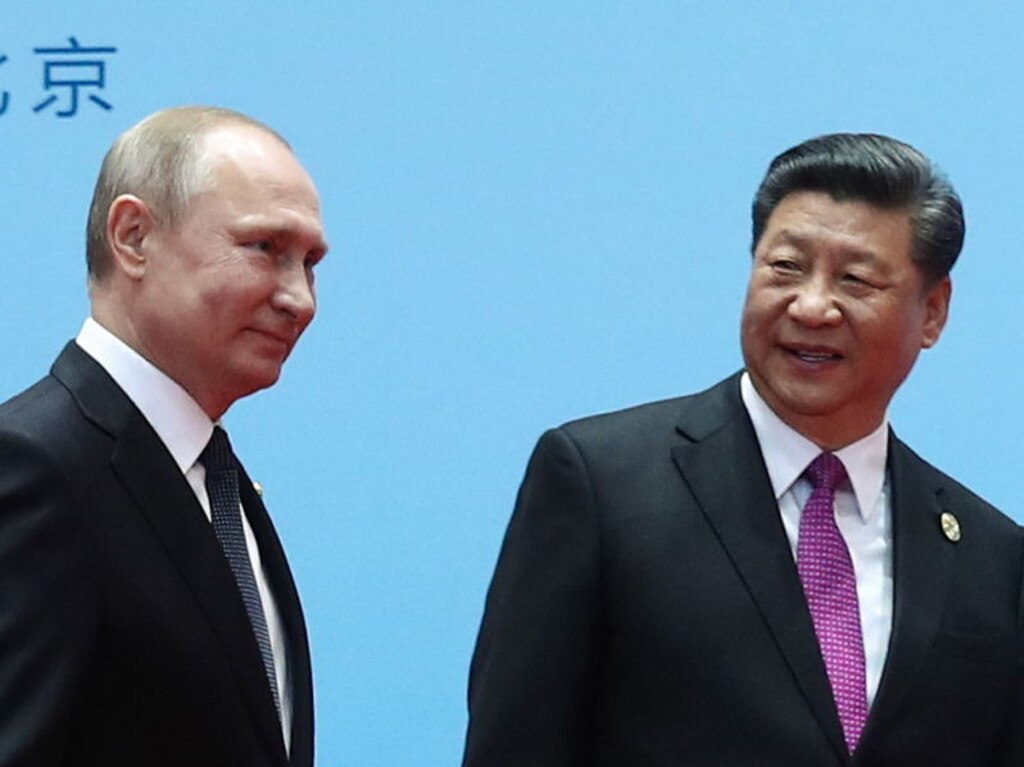
This article is more than
4 year oldThe European Union is expected to release details of a 300 billion euro (A$477b) scheme to rival China’s Belt and Road initiative, which endeavours to build trade links across the globe as a central part of the Asian superpower’s foreign policy.
China’s Belt and Road scheme has seen Beijing sink billions into new roads, ports, railways and bridges across Asia, the Indo-Pacific, Africa and the EU's nearer neighbours in the Western Balkans.
According to the BBC, more than 70 countries have been linked to the Chinese expansion plan, offering Beijing a chance to “promote regional connections and economic integration”.
Critics of the Xi Jinping government have described the scheme as a means to produce “predatory loans” to smaller nations, declaring the project a form of “debt-trap diplomacy”.
European Commission President Ursula von der Leyen is expected to present details of the "Global Gateway" initiative on Thursday, in a move perceived as the West’s direct response to China’s foreign economic expansion.
A draft released this week outlined the rough blueprint for the EU’s “Global Gateway,” which will allocate spending on digital, transport, energy and health projects in developing countries.
“The EU will offer its financing under fair and favourable terms in order to limit the risk of debt distress,” according to the document. Partners will have to adhere ‘to the rule of law, upholding high standards of human, social, and workers’ rights and respecting norms from international rules and standards to intellectual property’,” the draft reads.
The draft does not mention China explicitly, but critics believe the plan shows the clear intention of EU leaders to use the scheme as a counter to Beijing’s potentially damaging overseas development plan. According to Bloomberg, the Belt and Road initiative has already “pushed countries to unsustainable levels of indebtedness”.
The EU has emphasised their scheme as “values-based” and ”transparent” approach, claiming it wants to “create links not dependencies” and build overseas relations.


However, some believe the EU is playing copycat in its latest move to pour money into assisting developing countries.
“Global Gateway wouldn‘t exist if you didn’t have Belt and Road,” Andrew Small, a Senior Transatlantic Fellow at the German Marshall Fund, said. Mr Small said the project could be “bogged down” by the bureaucracy inherent to massive conglomerates like the EU, which includes leaders from 27 member states.
“Is it too rigid, or too bogged down by internal bureaucratic fighting? If they fail at this, it‘s a big miss,” he continued.
Jonathan Hillman of the Centre for Strategic and International Studies said the scheme could fall prey to budgeting issues and high expectations, such as sustainable environmental goals and plans to bolster democracy and human rights.
“Large infrastructure projects typically cost more than expected, take longer than expected, and deliver fewer benefits than expected – and that’s globally,” he said.
“Those risks are heightened because China’s Belt and Road reaches into some very challenging business environments, and it does so without adequate transparency and quality control.”
However, there is strong faith the 12-figure plan will be a success, providing countries with alternatives to the Belt and Road initiative. According to Michael Clauss, Germany’s ambassador to the EU, the scheme will be “attractive” to countries looking for “values-based co-operation”.
“Global Gateway has the potential to turn the EU into a more effective geopolitical player,” he said.
“For many partner countries, the offer of a rules- and values-based co-operation at eye level will be an attractive alternative to the Chinese Belt and Road initiative.”
EU leaders aim to have funds mobilised for the “Global Gateway” project by 2027.

China views the Belt and Road initiative as a crucial part of strengthening its geopolitical position, particularly through neighbouring superpowers like Russia.
But according to the South China Morning Post, Beijing is growing impatient with the lack of progress with Moscow.State officials believe further progress with Putin is essential for “safeguarding the two countries”.
Li Zhanshu, head of the National People’s Congress and member of the Communist Party Politburo Standing Committee, implored China and Russia support each other’s core interests.
“(We) must continue to focus on safeguarding the two countries’ political safety,” he said.
Li, who is the third most powerful man in the party, has also called on Russian officials to help fight “politicised searches for the origin of the coronavirus”.
“(We must) work closely within the international multilateral framework,” he said. “(We must) resolutely oppose starting a new ‘cold war’, bullying and interference in domestic affairs.”
Speaking with Chinese officials this week, Russian Prime Minister Mikhail Mishustin called for Moscow and Beijing to “join forces” against “illegal unilateral sanctions, political and economic pressure” from the West.

“Unfortunately, some foreign partners continue to take unfriendly actions against us and use techniques of unfair competition, often violating the basic norms of the multilateral trading system,” he said.
Mishustin aired also plans to pair the Eurasian Economic Union, a group of five former Soviet Union member states, and the Belt and Road Initiative.
“This is important for strengthening interconnectivity in the Eurasian space, it will help ensure the economic progress of Russia and China,” Mishustin said.
Speaking at the 3rd Russian-Chinese Energy Business Forum on Monday, President Xi said his country is “ready to pool efforts with Russia to achieve closer energy co-operation, to defend energy security, and to counter the challenges of global climate change”.